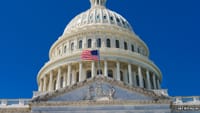Stop overpaying - start transferring money with Ogvio. Sign up, invite friends & grab Rewards now! 🎁
Coinbase Threatens US Exit As Response To SEC Remarks
GM Readers!📪 It's BitDegree Insider, and the Web3 cabin crew welcomes you onboard.
⭐️Today's selection:
- 🗣SEC Chairman's Speech
- ️🀄️China's Hidden Crypto Community
- 🧋Wednesday Bubbles
- 👌Selected Meme of The Day
- 📰Bite-Sized News

THE HEAD OF THE SEC SPEAKS
Gary Gensler, The SEC Chairman, has just addressed Congress.
Here are the key takeaways from his speech.
- Currently, there are many violations of rules in the cryptocurrency market, which is concerning.
- Most cryptocurrencies are considered securities and must comply with corresponding regulatory rules.
- Regarding ETH - uncertainty remains. It is unclear whether it is a security or not.
- If proper regulation occurs, stablecoins have a chance for legal functioning.
- Most crypto intermediaries combine several services that traditional financial institutions provide separately, which increases risks for investors. Therefore, crypto companies must register.
- The connection between the bank crashes of SVB and Signature and the crypto business isn't ruled out yet as well.

Sounds like The SEC has an attitude, and it's not getting any mellower with time.
But the crypto community had something to say in response.
Coinbase CEO, Brian Armstrong, has threatened to move the cryptocurrency exchange out of the US due to unclear regulatory guidelines.
This highlights the need for regulators to provide clear rules to avoid hindering the growth of the cryptocurrency industry.
Brian Armstrong believes that cryptocurrencies will have more applications than just market speculation.
He predicts that, if the current trend continues, the level of adoption in the industry will reach 2-3 billion people within a decade.
Armstrong mentioned this in a Twitter thread, commenting on a post by Goldfinch co-founder about the growing adoption of cryptocurrencies.
"It's disheartening to hear claims that we've achieved nothing in the past 10 years, and that crypto is purely a speculative segment. While using cryptocurrencies is still illegal in some places, I urge regulators to try and make a change," said Blake West from Goldfinch.
(P.S. If you don't know what Goldfinch are doing, stay tuned - we're about to talk about them tomorrow).
Armstrong responded to the tweet, saying:
"Well observed. There are many ways to use cryptocurrencies beyond speculation. Over the past decade, the number of users in this sector has grown to 200-300 million people. If this trend continues, we'll see 2-3 billion users within the next 10 years."
According to Armstrong, this process depends on three things:
- Scalability of Layer-2 protocols;
- Regulatory clarity;
- Ease of use.
Notably, these are the same points that Vitalik Buterin, the co-founder of Ethereum, discussed earlier.
In late February, he published an article about the difficulties of using cryptocurrencies on a daily basis, one of which is the unfriendly user interface.
Additionally, Coinbase previously released a report stating that using cryptocurrencies for transactions could eliminate most banking fees, providing another reason to adopt cryptocurrencies.
TL;DR: Gary Gensler, The SEC Chairman, has addressed Congress. In his speech, he made sure to address the risk of the crypto industry. In response to this speech, the crypto community stood their ground. Coinbase CEO, Brian Armstrong, even threatened to move out Coinbase out of the US due to regulatory uncertainty.
UNCOVERING CHINA'S HIDDEN CRYPTO COMMUNITY
Some researchers recently delved into the intriguing question:
After all the bans, prohibitions, and hostile policies...are there any crypto users in China despite all that?
And the answer is a resounding yes!
With a staggering 30 million crypto enthusiasts, China is certainly making its presence felt in the digital currency realm.

However, considering China's massive population, this figure only represents about 2.12% of the nation's people.
In comparison, South Korea boasts a 13.31% crypto adoption rate, while the United States sit at 12%, and Taiwan at 11%.
It's been two years since China imposed a ban on cryptocurrency trading, which dealt a significant blow to the local industry.
Yet, the sector hasn't vanished entirely and continues to attract substantial investments.

Global crypto landscape shifts have been taking place, as the US tightens its policies regarding digital currencies.
This has created a somewhat negative sentiment among the American crypto community, which others, especially the Chinese, are keen to capitalize on in their pursuit of an edge in all domains.
China perseveres in integrating its Central Bank Digital Currency (CBDC), the Digital Yuan.
Numerous Chinese provinces are witnessing an increase in the token's use cases, and the state is systematically pushing for a more rapid implementation.
Researchers also highlight the growing role of Hong Kong, which is gradually becoming the blockchain technology hub in Asia.
In April alone, nearly 100 conferences dedicated to Web 3 and blockchain will take place in the city.
Additionally, China Pacific Insurance, a state-owned company, has launched two crypto funds in Hong Kong.
And in today's exciting news, a Hong Kong court has recognized cryptocurrencies as property!
So, it's safe to say that the crypto scene in Asia is alive and kicking, with its influence set to grow even further. We'll see if other regions will accept a challenge.
Which region will be the most crypto-friendly in 5 years?
TL;DR: There are 30 million crypto-involved people in China, despite the fact that the country has banned crypto 2 years ago.
WEDNESDAY BUBBLES
All in the green!

Despite STX fluctuations, we can say that its price remains rather resilient.
SELECTED MEME OF THE DAY

BITE-SIZED NEWS
- Animated Franchise The Smurfs Launch NFT Collection Linked to Its Web3 Platform. There will be 12,500 NFTs featuring various Smurf characters.
- Former US President Donald Trump Rolls Out Second Round of His NFT Collection. It goes under the name of "Trump Digital Trading Cards Series 2."
- MetaMask Refutes Allegations of Wallet Breach Resulting in $10.5M Theft. MetaMask said 'no.'
Image
With close to a decade of experience in the FinTech industry, Aaron understands all of the biggest issues and struggles that crypto enthusiasts face. He’s a passionate analyst who is concerned with data-driven and fact-based content, as well as that which speaks to both Web3 natives and industry newcomers.
Aaron is the go-to person for everything and anything related to digital currencies. With a huge passion for blockchain & Web3 education, Aaron strives to transform the space as we know it, and make it more approachable to complete beginners.
Aaron has been quoted by multiple established outlets, and is a published author himself. Even during his free time, he enjoys researching the market trends, and looking for the next supernova.
The Most Liked Crypto News Findings
Looking for more latest crypto news on related topic? We have gathered similar news articles for you to spare your time. Take a look!





















